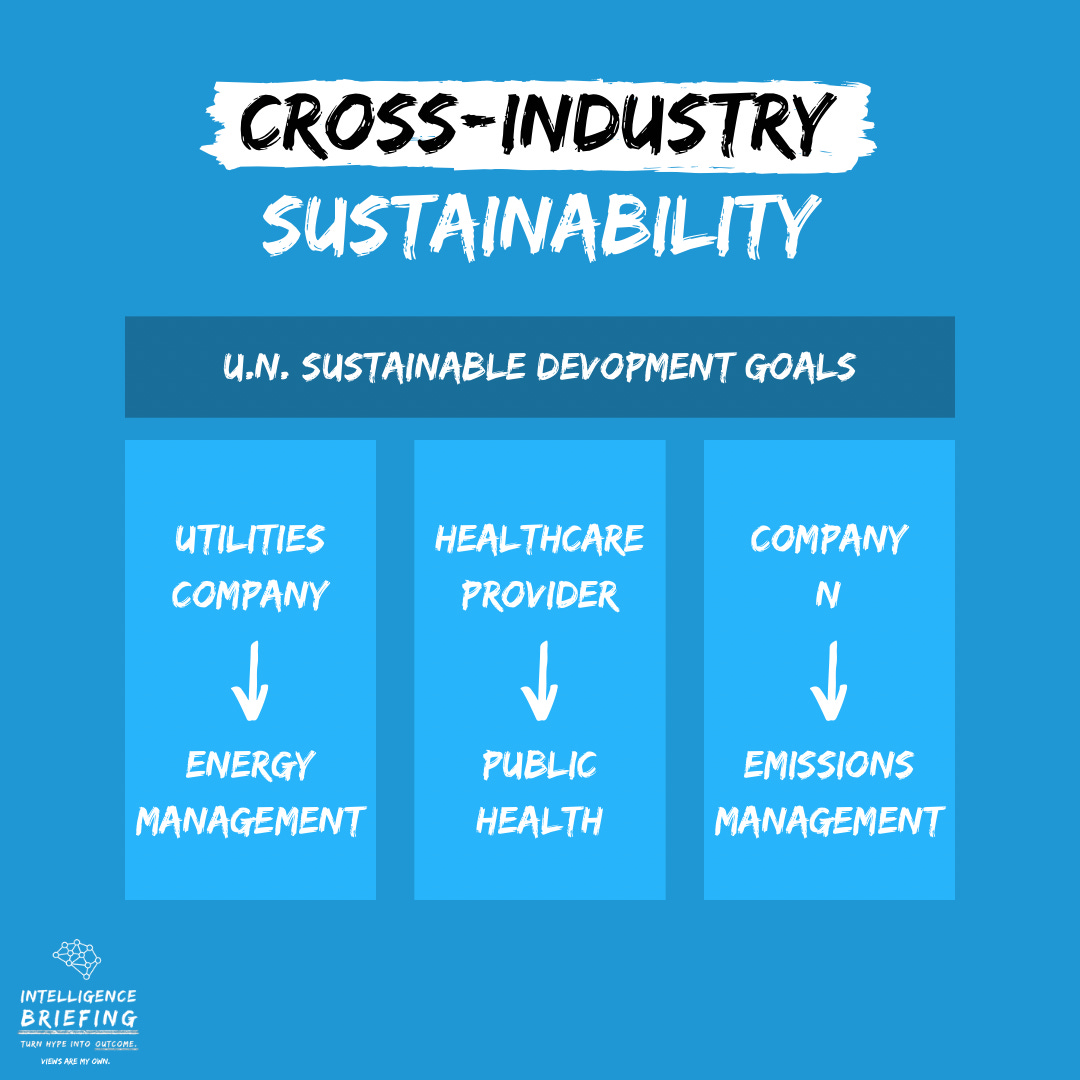AI For Sustainability: Following In AI Ethics' Footsteps?
Is It Time We Expand Our Definition Of Successful AI Product Criteria?
A few weeks ago, I recorded a livestream episode of “What’s the BUZZ?” together with Mark Minevich. Mark is an active AI leader, investor, founder and co-founder, and advisor to governments and government institutions. We talked about how AI can help create a sustainable future. And while we were “on the air”, I noticed something. It’s the motivation for writing this post.
It’s closely connected to another basic principle of business: Maximizing output with minimal input factors. According to 20th-century economist Milton Friedman, “the social responsibility of business is to increase its profits.“ While the thinking has since been expanded by businesses’ social responsibility, the underlying idea is still the driving force of for-profit organizations.
For decades, business leaders have looked to optimize their business with the help of technology. Therefore, it’s not surprising that business leaders are looking to AI to further increase and enable new efficiency gains.
AI For Sustainability Starts With Every Business
AI offers the potential to improve the lives of millions and billions of people. From climate change, weather forecasts, and yield prediction, to energy management, healthcare, and education, the applications touch nearly every aspect of our lives. Improving all of these aspects sounds like a pretty lofty goal. It’s attainable, but not without contributions from businesses that implement AI. Businesses across industries can contribute to the U.N.’s Sustainable Development Goals (SDGs).
That’s especially key where your AI products directly impact the environment or the people who live in it. For example, Utilities companies can and do play an active part in improving energy management. High Tech companies manufacturing devices and appliances can contribute by optimizing designs for energy efficiency and optimized load. Healthcare providers can incentivize their customers with the help of AI (e.g. gamification) to exhibit behavior that benefits public health. And companies in different industries can better forecast and mitigate their emissions supported by AI. The meta point is that the combination of individual choices aggregates and contributes to increased sustainability — much more so, than just continuing to talk about AI potential alone.
Will Sustainability Follow The AI Ethics Pattern?
Just a few years ago, AI used to be a highly technical topic, reserved for mathematicians, statisticians, and computer scientists. While technology was a core part of data scientists’ education, ethics was not. Compared to 5-6 years ago, professionals working on AI now appear to have a higher level of awareness of ethics. AI ethics researchers, responsible AI industry groups, etc. have become a melting pot for experts of different backgrounds. Thank goodness! Because it is this kind of diversity we need in this field if everyone should feel represented. But ethics is only one aspect of responsible AI practices.
Responsible AI is evolving into a trifecta of data privacy, ethics, and sustainability. Companies developing AI products need to ensure they positively impact the planet. To me, this means that Sustainability as a topic needs to become an integral part of AI development and of AI products — not a nice-to-have and not an afterthought. It’s time we evolve our thinking and our definition of what aspects constitute an AI project.
Summary
Mark’s perspective got me thinking. I’m hopeful that we will extend the dimensions of AI product development by incorporating sustainability — just like we’ve come to understand that data privacy and ethics are critical, too. It’s on all of us to do our part, whatever level of influence we have; be it direct or indirect.
Is it time Sustainability becomes part of what constitutes an AI product?
Become an AI Leader
Join my bi-weekly live stream and podcast for leaders and hands-on practitioners. Each episode features a different guest who shares their AI journey and actionable insights. Learn from your peers how you can lead artificial intelligence, generative AI & automation in business with confidence.
Join us live
February 15 - T. Scott Clendaniel, VP & AI Instructor, will share his view on using Generative AI to improve the user experience.
February 27 - Carly Taylor, Director of Franchise Security Strategy at Activision/ Call of Duty, will discuss how you can strengthen your security against Generative AI hackers.
March 05 - Bernard Marr, Futurist & Author. [More details soon…]
March 12 - Sadie St. Lawrence, Founder of Women in Data. [More details soon…]
Explore related articles
Watch the latest episodes or listen to the podcast
Follow me on LinkedIn for daily posts about how you can lead AI in business with confidence. Activate notifications (🔔) and never miss an update.
Together, let’s turn HYPE into OUTCOME. 👍🏻
—Andreas












